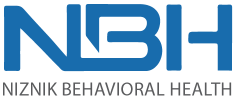Mouth Cancer Awareness Week
With an anticipated 53,000 new diagnoses in 2019, oral cancer will likely claim the lives of 11,000 people in the United States this year. Mouth cancer affects the soft tissues of the lips, mouth, and upper throat and is usually detected after spreading to the lymph nodes. As the 15th most common form of cancer in the world, raising awareness of this life-threatening disease can save lives.
November 10th through 16th is Mouth Cancer Awareness Week, dedicated to educating the public on prevention, early detection, and research efforts toward a cure.
What Causes Mouth Cancer?
Oral cancer typically develops squamous cells found in your mouth, tongue, and lips. Specifically, mouth cancers affect the soft tissues including the lips, tongue, inner cheeks, gums, mouth floor, and hard and soft palate. This cancer typically occurs in adults over the age of 40, most commonly in those over 55 years old.
As a cancer affecting the head and neck, spreading to other vulnerable tissues is a huge risk. Early detection is key to giving one the highest chance of survival.
Who is At-Risk for Developing Oral Cancer?
While mouth cancer can develop in anyone, certain genetic and lifestyle factors may increase your risk. Specifically, alcohol abuse and excessive use of tobacco products can greatly increase the chances of oral cancer. Other risk factors include:
- Human Papillomavirus infection (HPV)
- Chronic sun exposure to the face and neck
- Family history of cancer, especially oral cancer
- A compromised immune system
- Certain genetic syndromes
Additionally, Caucasian men have the highest rate of mouth cancer among all gender and racial demographics. Men in general are more than twice as likely to develop oral cancer overall.
Early Symptoms of Mouth Cancer
The early signs of mouth cancer can be easy to miss. These symptoms include:
- Red or red and white patches on the lining of the mouth or tongue
- Oral bleeding, pain, or numbness
- Ulcers or sores that do not heal
- Thickening of the gums or lining of the mouth
- Loose teeth with no apparent cause
- Issues with denture fitting
- Jaw swelling
- A sore throat or feeling that something is stuck in the throat
- Hoarseness
- Difficulty chewing, swallowing, or otherwise moving the jaw or tongue
Because many of these signs are visual, it can be easy to miss yourself. In many cases, early signs of oral cancer may be detected by an oral hygienist, which is an additional benefit of regular dental exams.
Mouth Cancer and Substance Abuse
As previously noted, alcoholism and tobacco use can increase one’s risks of oral cancer, especially in older adults. Reducing one’s alcohol and tobacco intake greatly decreases these risks and helps to improve your overall health. However, for many people struggling with alcohol addiction, that’s easier said than done.
Overcoming alcoholism is more than just abstaining from drinking. In fact, quitting “cold turkey” can be hazardous to one’s health, leading to serious conditions like delirium tremens. Alcohol detox in Miami is the safest means of purging the body of toxins related to alcohol abuse. Beyond this, committing to sober living requires one to address the underlying causes of substance abuse through the aid of recovery specialists.
Niznik Behavioral Health provides addiction treatment in Miami for both adolescents and adults. By providing a full continuum of care to all clients, we help to establish a solid foundation for a drug and alcohol-free future.

